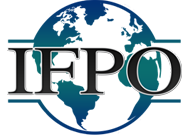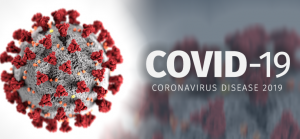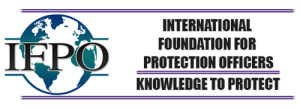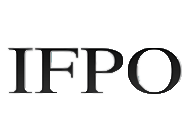from ISIO – The International Security Industry Organization
By Jean-Pierre Roux MPhil, BSocSc Hons, BSocSc, CHIMC, SCIM, FISIO
Human resources departments (HR) handing out information sheets is not going to curb the spread of the coronavirus (COVID-19). Training has to be conducted in concert and in person to all by the security department, as, it is a security threat.
Protocols
These protocols are designed to protect hospitality employees especially housekeeping and room-servers. This protocol is relevant for the lodging of any people i.e. boarding schools, rehabilitation centers, and retirement homes/villages.
Workers on the ground
Stage 1 Nature of the beast
- The incubation period is set between 1-14 days, with an outlier as much as 27 days, and a percentage of asymptomatic cases (no signs of illness were presented). Thus, an individual may be a carrier without yet, or ever presenting symptoms.
- There may be a tendency for staff to drink out of bottles left in the room or eat food left behind. This must cease because they could contract the disease from contaminated goods.
- Housekeeping staff and restaurant room servicers should now wear masks whenever entering and leaving a guest’s room. All staff must use alcohol-based hand sanitizer (ABHR) before entering and after leaving any guest room. If staff’s hands are visibly soiled they should be washed with soap and water for 40-60 seconds. Masks must be placed on the face only after hands have been sanitized.
All cutlery and crockery must be sanitized correctly, using hot water and detergent. If rinsed under cold water, COVID-19 might survive on the surface.
Stage 2 Hotel Security Situational Awareness
- Staff must be made aware to listen at the door before entering for guests coughing within their rooms.
If there are indicators or symptoms, staff mustn’t go into that room at all. The security supervisor/manager will then make the call to the guest, where they can ask the guest/s pertinent questions or offer to arrange medical support. - There will be situations where the guest/s have left their door open or opened the door before staff are able to listen through the door (no coughing heard beforehand):
If staff hear coughing or see signs of infection, once they are inside a room, such as medicines or tissues then, they must leave room straightaway and they are to report it to security immediately. Security are to contact the guest/s and offer medical support. - Entering occupied rooms with no guests inside or newly departed guest rooms:
Identify any used tissues or similar waste-paper, laying around or in the bin. Especially if this is in conjunction with multiple medications and/or sanitizers.
When symptoms or indicators are present, the room can only be cleaned by someone in a Hazardous Material (hazmat) suit. Designated cleaning bins and utensils such as sponges, clothes, and vacuum must be used. These must themselves be sanitized and stored separately.
The same protocols apply to room service. If they hear coughing, then they must leave food at the door and report it to security immediately. Staff must not go into that room at all. The security supervisor/manager will then make the call to the guest to let them know that the food is outside. Security could offer assistance including, the offer to call medical support.
There may be a tendency for restaurant room service staff to drink out of bottles left on the tray or eat food left behind. This must cease because they could contract the disease from contaminated goods.
House-keeping support services
- Hotels must subscribe to waste management companies that provide specialised bins for tissues used by housekeeping as well as disposal bins at the hotel’s waste collection sites as COVID-19 can survive on surfaces.
The WHO states that COVID-19 is likely to behave like other coronaviruses, whereby they can survive on surfaces from 2 hours to 9 days. - Hazmat companies could train the housekeeping to do hazmat cleaning of the room.
Closure of services
Full body contact, especially for extended periods of time in a concealed environment is a high-risk environment for contamination and transmissibility. This means that hotel spas should be closed over until COVID-19 is under control. Similarly, hotel gyms, saunas/hot-baths, and pools must be temporarily closed.
Supervisors and Managers
Nature of the beast: All people be it workers, suppliers or guests may want to hide their medical status due to stigma or having to be quarantined. Their decision to lie or be deceptive may not be selfish, but also to protect their job or family that they might have exposed.
First and foremost, each department could have their own unique issues and therefore, the over-sight manager must be able to comprehend their own particular nature of the beast. Consider that ‘Limiting or mitigating this issue, security success depends on the level of situational awareness of the people on the ground (decision-makers) and their reaction speed.’ Security and HR will need to be trained to identify if the person-of-interest (employees, suppliers, or patrons) is attempting to lie about their health status and/or hiding information relating to their movements and their interactions with others. Accordingly, the primary skills to skill-up are deception detection and critical situational interviewing (ISIO endorsed HIM Human Investigation Management – the easiest and most effective method).
Policy Management
There may not be many people that are killed, but there will be a lot of people that could go on sick leave. Budgets must be considered for increased sick-leave, cross-skill training, or temporary staffing, besides the equipment mentioned above and the soft-skill training that is a necessity. A further benefit of soft-skill training is that the knowledge can be used to identify loss prevention, bullying, and especially uncovering new crime or discovering evolving copycat crime.
Protocols must be implemented in hospitality in order to prevent the spread of COVID-19 within the industry. The severity and probability of this risk within the industry categories it extremely high. Without sound protocols and measures to mitigate the inherent risk, COVID-19 will remain a high risk.
View the HIM e-Connect Tools that includes guidance articles on all sectors of security besides research manuscripts of the tools.
Jean-Pierre Roux, BSocSc, BSocSc Honours, MPhil in Criminology, Compliance Management (UCT), SCIM, CHIMC (ISIO). Fellow of ISIO.
Publishing Hotel Security Manual: Threats, Assessments, and Solutions. ISBN 978-0-620-85719-2 [Contact author for further information jroux.crim@gmail.com]
This document is endorsed by IFPO International Foundation for Protection officers and HIM Human Investigation Management.




